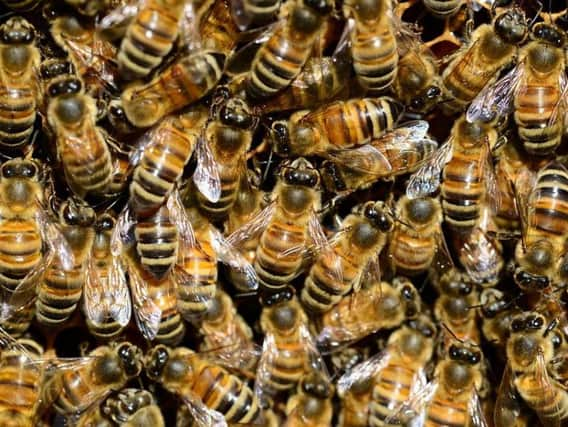Sussex scientist on how to avert 'catastrophic collapse of nature’s ecosystems'


It comes after a study, published in the Biological Conservation journal, stated that plummeting insect numbers threatened a 'catastrophic collapse of nature’s ecosystems'.
Speaking of the study, first reported on in The Guardian, Professor Goulson said: “Love them or loath them, we humans cannot survive without insects.
Advertisement
Hide AdAdvertisement
Hide Ad“[They] make up about 60% of all known species, pollinate 3/4 of our crops, and 87% of all plant species.
“[Insects] are food for most birds, bats, lizards, amphibians and many fish, and so are at the heart of food webs; without them, most other creatures would disappear.”
Currently more than 40 per cent of insect species are declining, and a third are already endangered; an extinction rate eight times faster than that of mammals, birds and reptiles.
Professor Goulson said that a number of factors have contributed to this severe decline in insect numbers.
Advertisement
Hide AdAdvertisement
Hide Ad“It is a combination of habitat loss (to intensive farming, roads, factories, housing etc.), plus the very large scale use of numerous pesticides in farming, city parks and gardens, with climate change now also starting to have an effect.”
According to the analysis, the total mass of insects is falling by 2.5 per cent a year and within a century they could vanish entirely.
For those who want to help try and avert this impending natural disaster, Professor Goulson has plenty of suggestions.
“Gardens, villages, towns and cities have the potential to become vast nature reserves, and for people to get directly involved in conservation, and engaging with nature,” he said.
Advertisement
Hide AdAdvertisement
Hide Ad“We have approximately half a million hectares of gardens in the UK, plus city parks and green spaces, school playing fields, railway embankments and cuttings, road verges and roundabouts; if managed favourably, these areas could go a long way towards creating a national network of insect-friendly habitats.
“We can also encourage farming to be more sustainable by voting for politicians with a green agenda, by buying organic, local, seasonal produce, reducing food waste, and eating less red meat.”